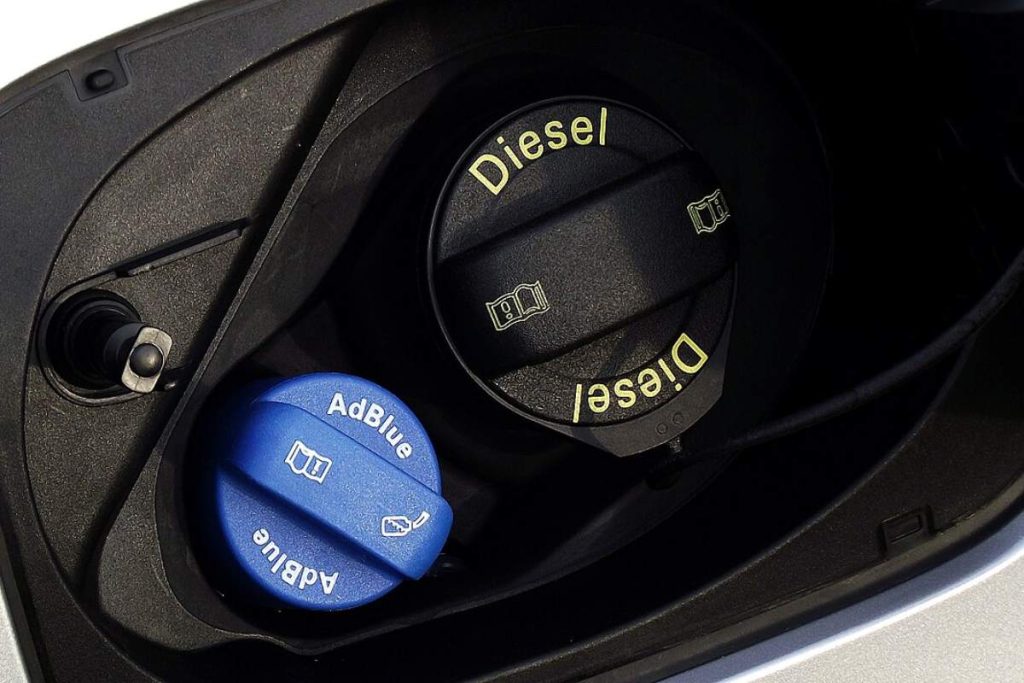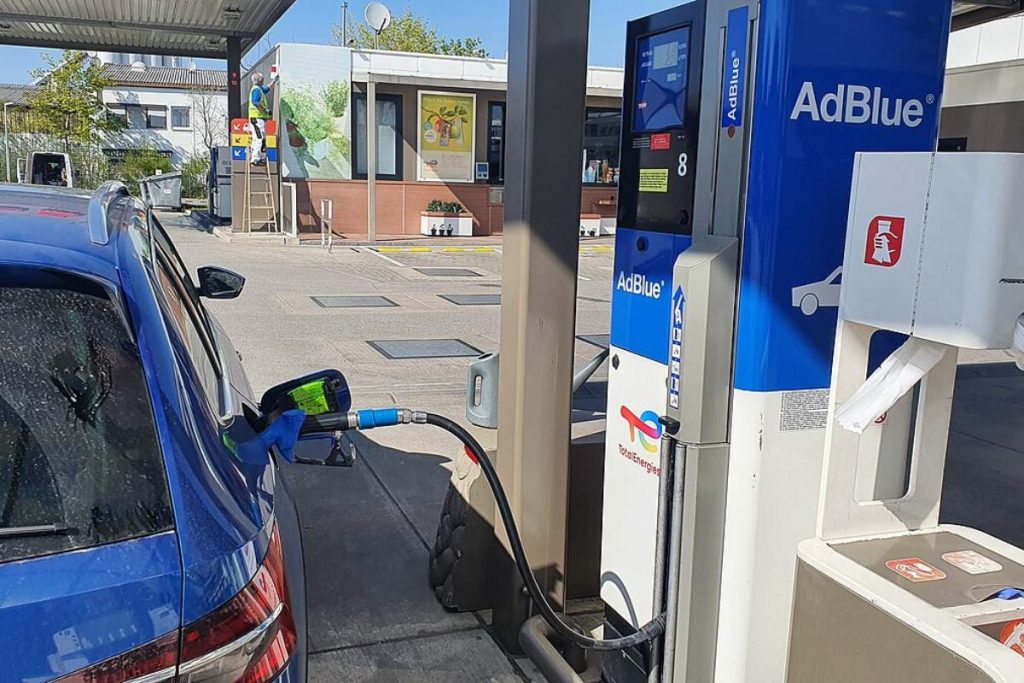What is AdBlue and why do we need it? How much does AdBlue cost in Australia and where can I buy it? Click here to learn more
In today’s world, diesel vehicles are increasingly equipped with advanced technologies to reduce their environmental impact. One such technology is AdBlue, a crucial fluid used to minimize harmful emissions from diesel engines. But what exactly is AdBlue, and why is it so essential for modern vehicles?
Understanding AdBlue’s role and the consequences of neglecting its use can help you maintain your vehicle’s performance and contribute to a cleaner environment. In this article, we will explore what AdBlue is, why it’s necessary, the potential problems of not using it, and where you can buy it in Australia.
You might also read:
What is AdBlue and Why Do We Need It?
AdBlue is a special fluid used in modern diesel vehicles to help reduce harmful emissions. If you drive a diesel car, truck, or bus built in recent years, you’ve probably heard of AdBlue. But what exactly is it, and why is it so important?
What is AdBlue?
AdBlue is a trademarked name for a fluid made from a mixture of deionised water and urea. It’s used in a system called Selective Catalytic Reduction (SCR) which is part of a vehicle’s exhaust system. The main purpose of AdBlue is to cut down on nitrogen oxides (NOx) emissions produced by diesel engines.
Nitrogen oxides are harmful pollutants that can contribute to smog and acid rain, and they can also have serious health effects, like aggravating respiratory problems. By using AdBlue, we can significantly reduce these pollutants.

How Does AdBlue Work?
AdBlue is injected into the exhaust gases as they pass through the SCR system. The fluid reacts with the nitrogen oxides in a chemical process that turns them into harmless nitrogen and water vapour. This reaction takes place in a special catalytic converter, which is part of the exhaust system.
Here’s a simple breakdown of the process:
- Injection: AdBlue is injected into the exhaust gases coming from the engine.
- Reaction: The urea in AdBlue reacts with the nitrogen oxides in the exhaust gases.
- Conversion: This reaction converts the nitrogen oxides into nitrogen and water vapour.
- Emission: The clean gases are then expelled through the exhaust pipe.
Why Do We Need AdBlue?
1. Environmental Protection: One of the main reasons we need AdBlue is to meet stricter environmental regulations. Governments worldwide have set tough standards for vehicle emissions to combat air pollution and its harmful effects on health and the environment. AdBlue helps diesel vehicles comply with these standards by reducing the nitrogen oxides they emit.
2. Health Benefits: Reducing nitrogen oxides in the air has significant health benefits. High levels of these pollutants can contribute to respiratory problems, such as asthma, and can worsen existing conditions. By cutting down these emissions, AdBlue helps improve air quality and public health.
3. Fuel Efficiency: Using AdBlue doesn’t just help with emissions; it can also contribute to better fuel efficiency. Diesel engines can operate more efficiently when paired with SCR systems, which can lead to better fuel economy in the long run.
4. Vehicle Performance: Modern diesel engines are designed to run cleaner and more efficiently, and AdBlue plays a crucial role in this. By reducing harmful emissions, it ensures that vehicles can perform optimally while still meeting environmental standards.
How Do You Use AdBlue?
AdBlue is stored in a separate tank in your vehicle, and you need to refill it periodically, just like you do with diesel fuel. Many vehicles have a warning light that will come on when the AdBlue level is low, so you’ll know when it’s time for a top-up. You can buy AdBlue from most service stations or automotive stores.
What Happens If I Don’t Use AdBlue?
If you don’t use AdBlue in a vehicle that requires it, several things can happen:
1. Increased Emissions
AdBlue plays a crucial role in reducing nitrogen oxides (NOx) emissions, which are harmful pollutants. Without AdBlue, your vehicle will not be able to effectively reduce these emissions, leading to higher levels of NOx being released into the atmosphere. This can contribute to air pollution and environmental damage.
2. Legal and Regulatory Consequences
Many countries have strict emission standards for vehicles, and AdBlue is part of the technology that helps diesel vehicles meet these standards. If you don’t use AdBlue, your vehicle may fail to comply with these regulations. This can result in fines, penalties, or even being barred from driving your vehicle until it meets the required emission standards.
3. Reduced Engine Performance
Modern diesel engines equipped with Selective Catalytic Reduction (SCR) systems, which use AdBlue, are designed to optimize performance and efficiency. If AdBlue is not used, the engine may go into a “limp mode” or reduced performance mode to prevent damage and reduce emissions. This mode limits the engine’s power and performance, making your vehicle less efficient and harder to drive.
4. Increased Fuel Consumption
When AdBlue is not used, your vehicle’s engine management system may alter the fuel injection and exhaust settings to try and compensate for the missing emissions control. This can lead to increased fuel consumption and reduced fuel efficiency, costing you more at the pump.
5. Potential Engine Damage
Long-term neglect of AdBlue can cause damage to the engine and exhaust system. The SCR system is designed to work with AdBlue to protect and maintain the engine’s health. Without it, the engine may experience increased wear and tear, potentially leading to costly repairs or replacement.
6. Warning Lights and Alerts
Most vehicles that use AdBlue are equipped with sensors and warning systems that will alert you when the AdBlue level is low or when there is a problem with the system. Ignoring these warnings can lead to more severe consequences, as the vehicle may restrict performance or refuse to start if the AdBlue system is not functioning properly.
7. Impact on Resale Value
Failing to maintain your vehicle’s AdBlue system can affect its resale value. Prospective buyers may be concerned about potential damage or non-compliance with emission standards, which could lower the vehicle’s market value.

How Much Does AdBlue Cost in Australia and Where Can I Buy It?
In Australia, the cost of AdBlue can vary depending on where you buy it and the quantity. Generally, you can expect to pay around $2 to $3 per litre, though prices may fluctuate based on supply and demand.
Where to Buy AdBlue in Australia
- Service Stations: Many service stations across Australia sell AdBlue, often at the same pumps where you fill up your diesel. Look for a dedicated AdBlue dispenser or ask the station staff for assistance.
- Automotive Stores: AdBlue is available at various automotive parts and accessory stores. Retailers like Supercheap Auto, Autobarn, and Repco often stock AdBlue in various sizes.
- Online Retailers: You can purchase AdBlue online from retailers like Amazon Australia, eBay, or specific automotive supply websites. This can be convenient if you prefer to have it delivered to your home or business.
- Dealerships: Some car dealerships, especially those that sell diesel vehicles, may offer AdBlue. This can be a reliable source if you’re looking for a specific brand or type.
- Bulk Suppliers: If you use a large amount of AdBlue, such as for commercial vehicles or fleets, you might consider buying in bulk from industrial suppliers or specialized AdBlue distributors like EcoBlue AdBlue, an Australian leading AdBlue supplier. This can offer cost savings and more convenient delivery options.
It’s a good idea to check prices and availability at different locations to find the best deal and most convenient option for your needs.
Final Thought
AdBlue is an essential component in the emissions control systems of modern diesel engines, playing a crucial role in reducing nitrogen oxide emissions and complying with environmental standards.
A lack of AdBlue can lead to increased emissions, potential legal repercussions, diminished engine performance, and greater fuel consumption, among other issues. Proper maintenance of your vehicle’s AdBlue system is not only environmentally responsible but also ensures efficient operation and adherence to regulations.
In Australia, AdBlue is widely available at service stations, automotive shops, online vendors, and from bulk distributors. Being informed and proactive about AdBlue usage contributes to a cleaner environment and optimal vehicle performance.





